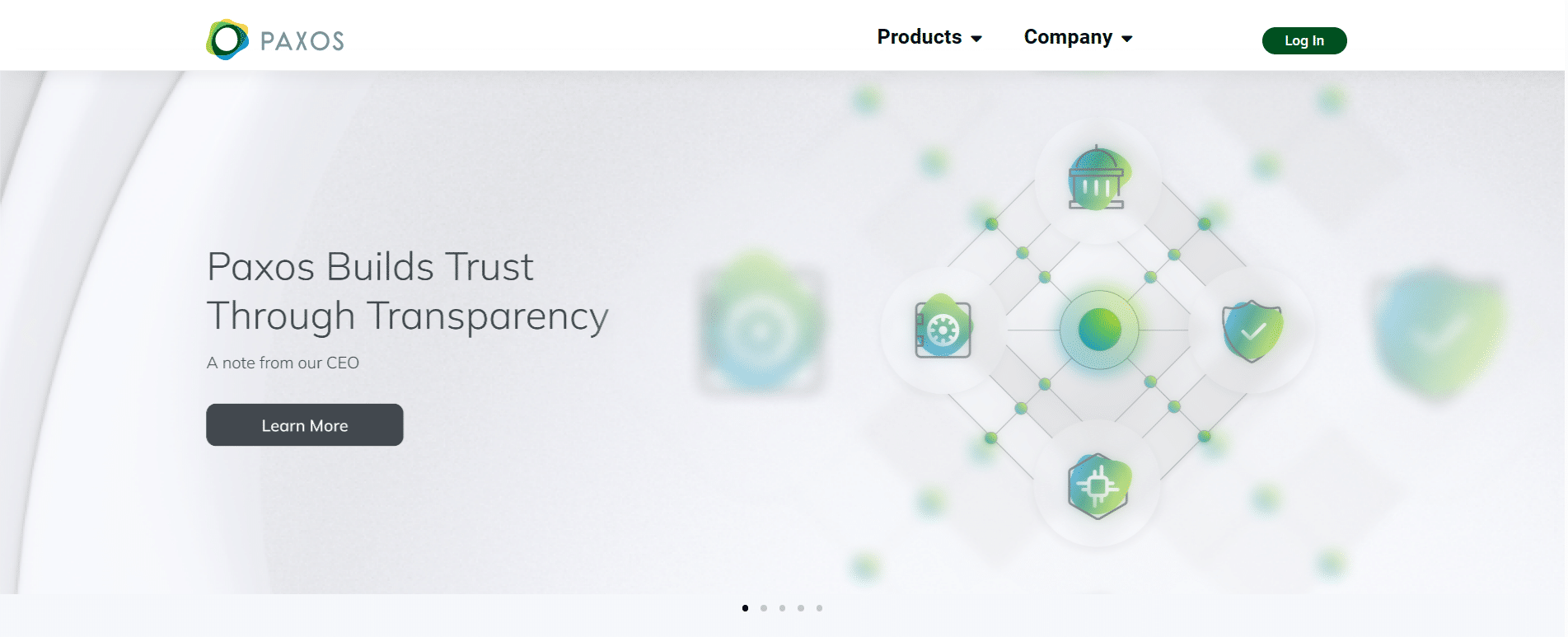
News that Venmo is now accepting transfers of cryptocurrency is among the top stories in crypto of late. Here are some of the other stories making the crypto headlines.
Paxos Partners with Fierce Finance
Blockchain infrastructure platform Paxos has forged a partnership with financial services app, Fierce Finance. Paxos’ technology will be leveraged to power Fierce Finance’s new digital asset experience. This new offering will combine an FDIC-insured checking account, a no-fee debit card, and fractional stock, ETF, and cryptocurrency trading all in a single app.
“We are the qualified custodian managing the licensing, trading, and technical complexity so that our clients can focus on building a seamless user experience,” Paxos Chief Revenue Officer Michael Coscetta said. “By integrating with Paxos platform, Fierce ensures its users get the best prices with the proper consumer protections in place so that their assets always remain safe and accessible.”
Headquartered in New York, Paxos was founded in 2012. The company reached a major milestone at the beginning of last month when it surpassed ten million active end user digital wallets globally. Earlier this year, Paxos launched an engineering R&D Center in Israel focused on “security and cryptography excellence.” The center will serve as a hub for cryptography researchers and security specialists to develop secure solutions on top of the blockchain.
Paxos has raised more than $540 million in funding. The company’s investors include Oak HC/FT, Declaration Partners, and PayPal Ventures.
Tax on Cryptocurrency Mining Proposed
If the Biden administration gets its way, the electricity used in mining cryptocurrencies could get a lot more expensive. The White House is proposing a 30% tax to offset the impact of cryptocurrency mining on the environment.
A statement from the Council of Economic Advisors (CEA) argues that the “high-energy consumption” of cryptocurrency mining “has negative spillovers on the environment, quality of life, and electricity grids” wherever they are located. A report from the White House released last fall suggested that cryptocurrency mining devours more electricity than the country of Australia. In the U.S., cryptocurrency mining represents between 0.9% and 1.7% of all electricity use. The U.S. is home to approximately a third of the world’s cryptocurrency mining.
Some critics of the proposal believe less in the administration’s concerns over the climate and more in its antipathy toward the cryptocurrency industry in general. Other observers suggest that taxing greenhouse gas emissions from cryptocurrency mining makes more sense than simply taxing electricity use – which can come from clean sources.
If enacted, the tax could yield $3.5 billion over 10 years.
Coinbase Launches International Exchange
Hot on the heels of securing a license to operate in Bermuda, U.S.-based cryptocurrency exchange Coinbase has launched its Coinbase International Exchange. The new exchange will give institutional market participants in eligible jurisdictions outside the U.S. the ability to trade perpetual futures.
Perpetual futures are similar to futures contracts in other assets. But there are important differences. Perpetual futures do not have an expiration period – unlike traditional futures contracts. This enables traders to hold on to their positions for longer periods – or even indefinitely. Trading in perpetual futures is not allowed in the U.S. But the market for perpetual futures is sizable. Almost 75% of cryptocurrency trading worldwide last year was in perpetual futures.
Coinbase International exchange listed perpetual futures contracts for both Bitcoin (BTC) and Ethereum (ETH) this week. The contracts provide 5x leverage and all trades are settled in USDC.
New Digital Asset Venture Fund Coming from Fineqia
Digital asset and fintech investment company Fineqia will launch a new venture capital fund to invest in startups in the digital asset space. The new fund, Fineqia Glass Slipper Ventures (FGSV), will focus on investments in early and growth-stage technology companies. Among Fineqia’s current investments in the industry are digital asset manager Wave Digital Assets LLDC, and blockchain gaming platform company Forte Labs. The fund has identified blockchain infrastructure, decentralized finance, and the metaverse as areas of particular investment interest.
“We have a proven track record of investments that are generating extraordinary returns,” Fineqia CEO Bundeep Singh Rangar said. “An investment fund will give us more firepower to invest in the most promising firms among the scores we see monthly and take advantage of entry valuations not frothy as they were 18 months ago.”
Deloitte Leverages the Blockchain for KYB, KYC
Will the next big thing in decentralized finance come from the underlying blockchain technology or from products like cryptocurrencies? The latest entry in the “innovative blockchain use case” competition comes courtesy of Deloitte Consulting. The firm announced that it has partnered with BOTLabs GmBh to use its KILT protocol to support KYC and KYB processes.
“By offering re-usable digital credentials anchored on the KILT blockchain, Deloitte is transforming verification processes for individuals and entities,” Head of Deloitte Managed Services Micha Bitterli said. “Digital credentials that are convenient, cost-effective and secure have the potential to open new digital marketplaces, from e-commerce and DeFi to gaming.”
Re-usable credentials are stored on the customer’s wallet on their own device. Customers have full control over whom they share their credential with. They can also control which data points on the credential they grant access to. Deloitte digitally signs the credentials and is able to revoke credentials via the blockchain if a customer’s circumstances change.












